OpenStack vs Rackspace
August 28, 2023 | Author: Michael Stromann
19
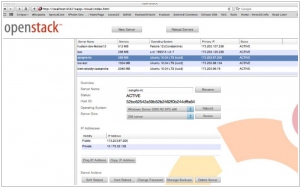
OpenStack is a global collaboration of developers and cloud computing technologists producing the ubiquitous open source cloud computing platform for public and private clouds. The project aims to deliver solutions for all types of clouds by being simple to implement, massively scalable, and feature rich. The technology consists of a series of interrelated projects delivering various components for a cloud infrastructure solution.
7
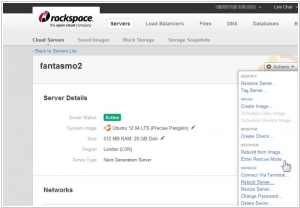
Rackspace Cloud offers four alternative hosting products: Cloud Servers for on-demand computing power; Cloud Sites for robust web hosting; Cloud Load Balancers for easy, on-demand load balancing and high availability; and Cloud Files for elastic online file storage and CDN.Rackspace Cloud hosting customers never need to worry about buying new hardware to meet increasing traffic demands or huge traffic spikes.
OpenStack and Rackspace are related but distinct entities in the realm of cloud computing. OpenStack is an open-source cloud computing platform that provides a framework for building and managing private and public clouds. It offers a set of software tools and components for creating Infrastructure as a Service (IaaS) environments, allowing organizations to deploy and manage virtual machines, storage, and networking resources. Rackspace, on the other hand, is a managed cloud services provider that offers various cloud hosting solutions, including public cloud, private cloud, and hybrid cloud environments. While Rackspace initially played a significant role in the development of OpenStack, it has since evolved into a managed service provider offering solutions that leverage OpenStack as well as other cloud technologies.
See also: Top 10 Public Cloud Platforms
See also: Top 10 Public Cloud Platforms
OpenStack vs Rackspace in our news:
2018. Rackspace acquired Salesforce specialist RelationEdge
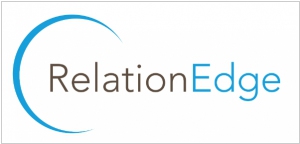
Rackspace has completed the acquisition of RelationEdge, a recognized partner specializing in Salesforce implementation. While Rackspace has established itself as a prominent provider of hosting and managed cloud services, the company is determined to broaden its portfolio and incorporate managed services for SaaS applications. This strategic move follows Rackspace's previous acquisition of TriCore, a company operating in the enterprise application management sector, signaling the company's commitment to expanding its capabilities in this domain. Through the acquisition of RelationEdge, Rackspace aims to further enhance its offerings and strengthen its position in the market.
2017. Rackspace acquires multi-platform hybrid IT management solution Datapipe
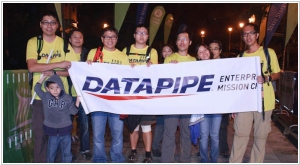
Rackspace has announced its acquisition of Datapipe, a major competitor in the managed public and private cloud services industry. While Datapipe has achieved significant success with enterprise and government clients, Rackspace has traditionally focused on the mid-market segment. Notably, the two companies have not consistently competed for the same deals, and their product portfolios differ substantially. Rackspace acknowledges that it could have attained similar technical capabilities through multiple smaller acquisitions, but this approach would have been more time-consuming and may not have granted Rackspace access to Datapipe's current customer base. Among Datapipe's customers are numerous large public-sector organizations, including the U.S. departments of defense, energy, and justice, as well as the U.K.'s cabinet office, ministry of justice, and department of transportation.
2016. Rackspace added cloud optimization platform to its private cloud
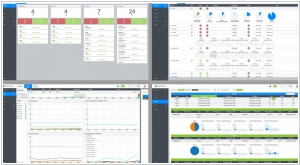
In a collaboration with AppFormix, Rackspace has introduced cloud monitoring and performance optimization tools to its private OpenStack cloud. This partnership grants Rackspace customers the ability to utilize AppFormix's real-time monitoring, analytics, and optimization tools. Rackspace's engineers will also leverage these tools to efficiently manage the cloud services for their customers. This marks a somewhat atypical move for Rackspace, as the company typically develops its own tools for managing the technical aspects of its cloud business. Notably, Rackspace played a pivotal role as a founding member of the OpenStack project, alongside NASA.
2016. Rackspace offers ready-to-use Openstack private clouds
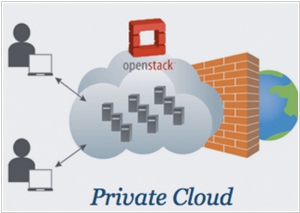
Rackspace has been a long-standing provider of enterprise solutions for managing private OpenStack deployments. However, until now, companies were required to build their own hardware and infrastructure. A significant development now allows enterprises seeking to transition to OpenStack for their private cloud deployments to rely on Rackspace for the complete process, from building and monitoring the infrastructure to managing the OpenStack clouds at every level, including the software stack. Rackspace's expert employees will oversee all aspects of the deployments and assist customers in smoothly transitioning to their new cloud environments. Customers availing this service can expect an impressive 99.99 percent uptime Service Level Agreement (SLA) from Rackspace, although it is important to note that events such as power failures in data centers are beyond the company's control. Rackspace is prepared to install these new private clouds in virtually any data center globally, and it has also partnered with Equinix to expedite and simplify deployments in the data centers operated by the latter.
2015. Google is joining OpenStack
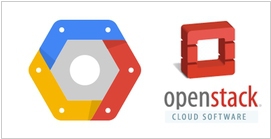
Google has recently become a corporate sponsor of the OpenStack Foundation, demonstrating its commitment to the open-source project. This sponsorship entails an annual contribution of $25,000. Google's focus within the project will revolve around Linux containers, as well as the integration of the Kubernetes container management tool, which was developed by Google, into OpenStack. Notable corporate sponsors of OpenStack include Alcatel-Lucent, Citrix, Comcast, Cray, GoDaddy, Fujitsu, Oracle, SAP, Nokia, and the Linux Foundation. Beyond the financial commitment, Google's involvement signifies a symbolic gesture due to its prior engagement with the project. The company has previously collaborated with OpenStack on various initiatives, such as the Murano application catalog and the Magnum container orchestration service. Google intends to contribute engineering resources to further support the project's advancement.
2014. Rackspace will sell and manage Google Apps

Cloud provider Rackspace has expanded its offerings to include the sale and support of Google Apps for Work to business customers, alongside its existing reselling and support of hosted Exchange and Sharepoint. Google Apps for Work, available directly, starts at $5 per user per month with 30 GB of online storage, while an unlimited storage version costs $10 per user per month. Rackspace will charge $10 per user per month for the basic package and $15 per month for unlimited storage. The additional $5 provides access to Rackspace's renowned "fanatical support," encompassing assistance with provisioning, security configuration, device management, migration issues, and account management. By offering Google Apps for Work, Rackspace aims to cater to the diverse needs of its business customers and provide comprehensive support for their collaboration and productivity tools.
2014. Rackspace guarantees 99.99% uptime of private cloud
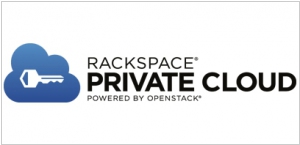
Rackspace is expressing great confidence in the latest release of its private cloud software, built on the OpenStack open-source framework for cloud computing. The company is even offering a guarantee of success for enterprise workload production. Rackspace initially introduced its private cloud in the summer of 2013 and has now enhanced its offering with several notable features. These include a 99.99 percent uptime guarantee for the OpenStack API, increased scalability capable of supporting hundreds of nodes, and DevOps automation services for efficient application lifecycle management. While facing tough competition from industry giants like Amazon Web Services, Google Compute Cloud, and Microsoft Azure, which can provide more competitive pricing, Rackspace aims to leverage the momentum it has built through its private cloud solutions.
2014. VMware integrates its cloud management tools with OpenStack
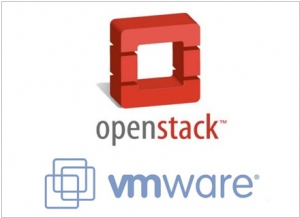
Virtualization giant VMware has announced the integration of its lineup of tools with the OpenStack open-source cloud framework. This new service is scheduled for release in the first half of 2015. With this integration, organizations that have an OpenStack cloud infrastructure in place will have the capability to manage it using VMware's tools through their IT operations staff. Additionally, organizations running data centers and equipment based on the VMware stack will be able to seamlessly synchronize them with other equipment running on OpenStack. It is worth noting that OpenStack was initially developed as an alternative to VMware's private cloud and Amazon's public cloud. VMware's Integrated OpenStack appears to challenge the idea held by OpenStack purists who prefer a private cloud built on multiple open-source components.
2012. Surprise! VMWare has joined OpenStack
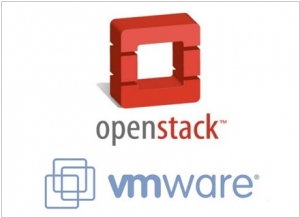
Recently we found out that the open cloud platform alliance OpenStack includes several members from EMC. It was a surprise, because EMC owns VMWare - the direct competitor of OpenStack. We thought that it was a little misunderstanding in the Swedish family EMC-VMWare. But this wasn't the last surprise in this story. In the end of the last week, VMWare personally became the "Gold member" in OpenStack. (Recall, OpenStack was founded two years ago in order to struggle against the dominance of Amazons's public cloud and VMWare's data-center cloud management systems). Together with VMWare two more giants: Intel and NEC joined OpenStack on Friday. So now, on the cloud platform market we have the confrontation: Amazon vs "Everyone else". You may think that the forces are not equal, but ... ***
2012. OpenStack - is like the Soviet Union. Who develops OpenStack?
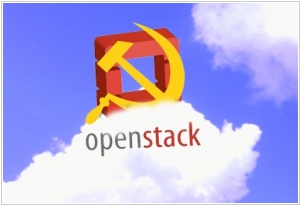
Last week, RackSpace has launched the open platform OpenStack in its cloud. And though HP has done the same a little earlier, but in HP Cloud OpenStack is running in beta mode, but in RackSpace Cloud - anyone already can start using OpenStack for business needs. So now all these debates what is more cool, Amazon Web Services or OpenStack will go into practical area. And the last theoretical debates took place shortly before the launch at the GiGaOm Structure conference. And at this conference, Chris Kemp, CEO of cloud provider Nebula (which, by the way, is OpenStack member) compared OpenStack with Soviet Union - "a collective farm ostensibly run for the good of its members, but where nothing is actually accomplished." Why Chris Kemp said that? Let's take a look, who develops OpenStack: ***


